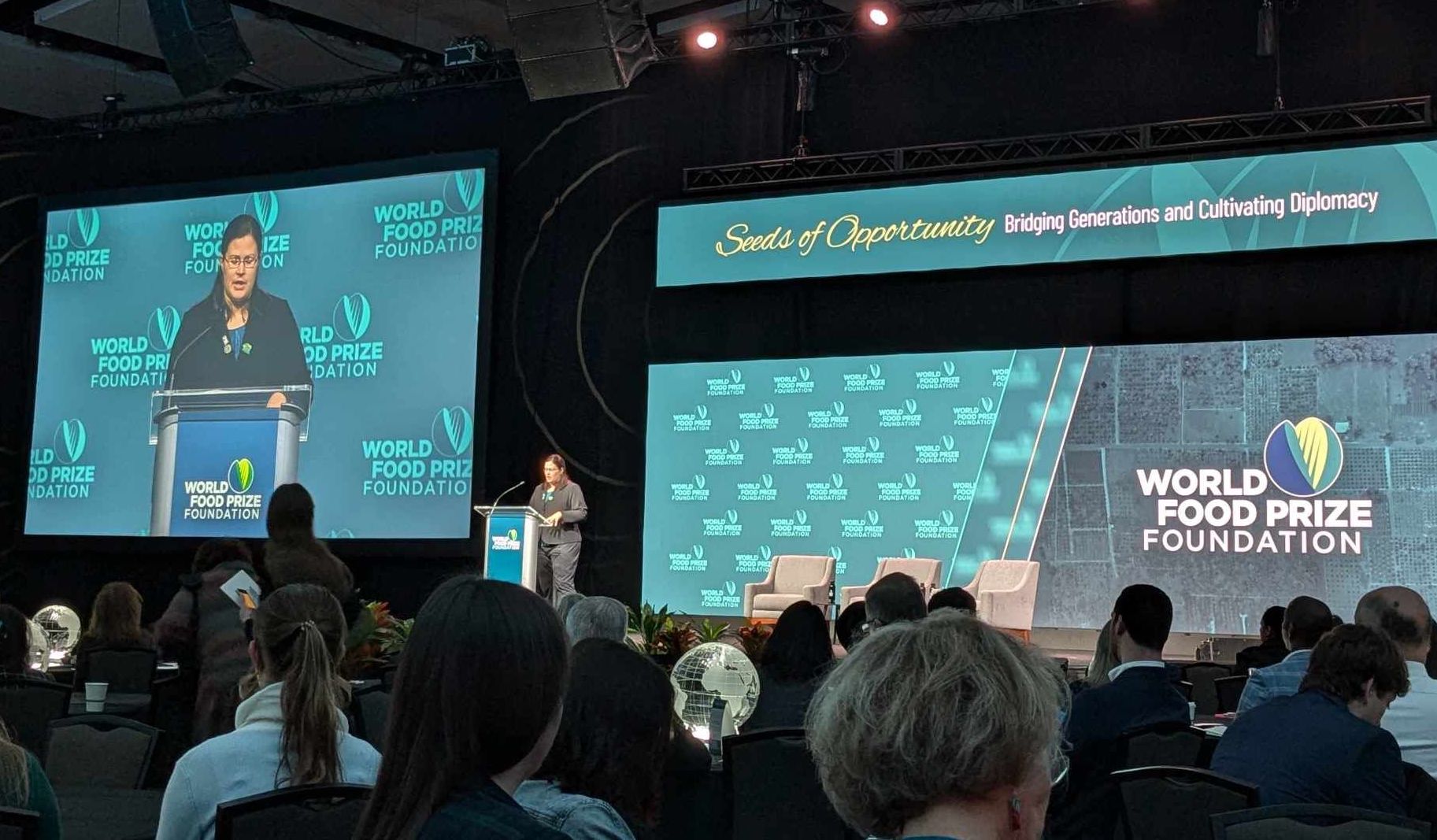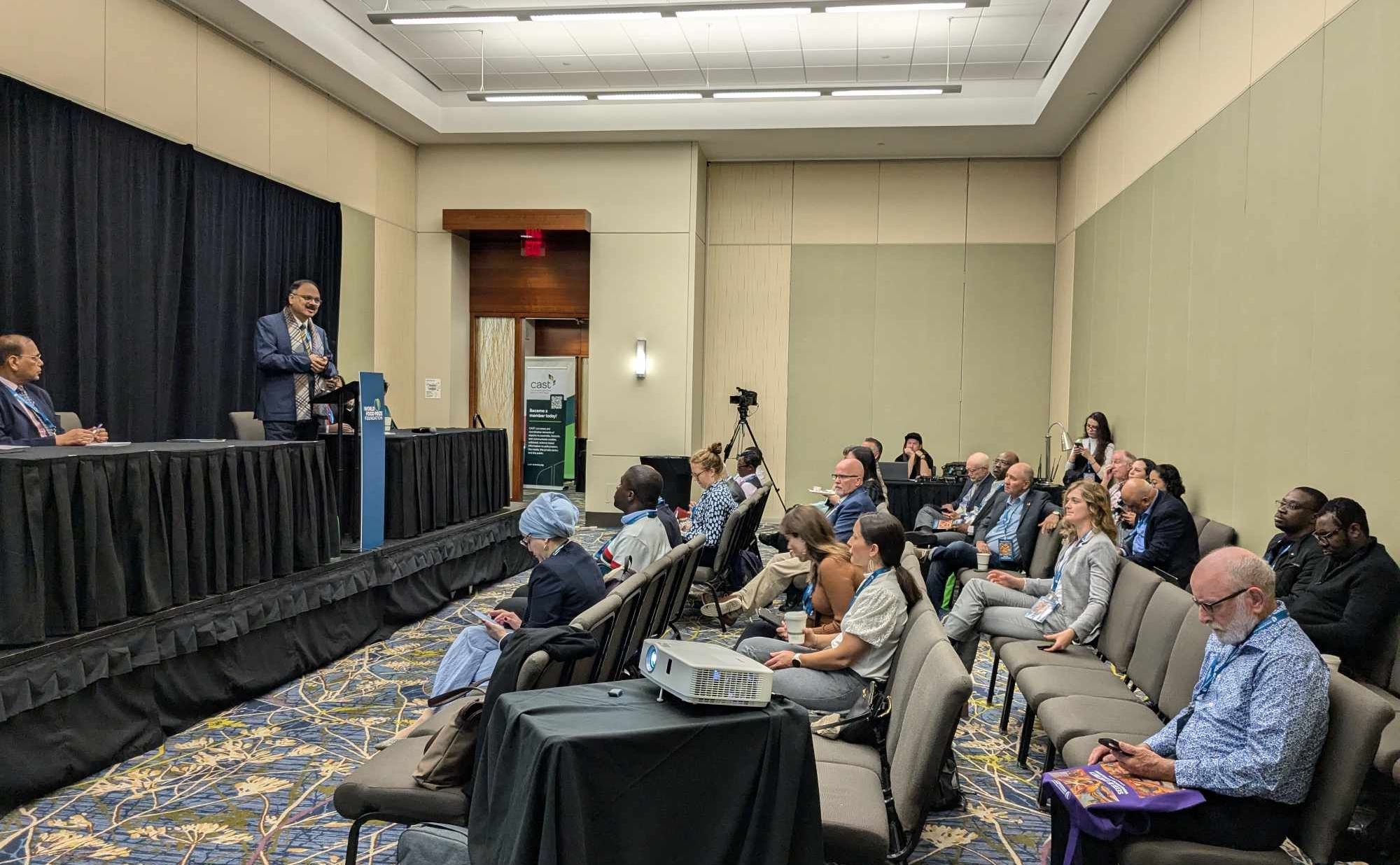PSM students and faculty present at World Food Prize 2024 event
Thousands attend PSM presentations at Borlaug Dialogue

PSM PhD candidate Hannah Jeffrey and several other PSM faculty and students presented their work at the Norman E. Borlaug International Dialogue held by the World Food Prize Foundation October 29 - 31, 2024 in Des Moines, Iowa.
 As an alumni of the WFPF’s Global Youth Institute Addie Thompson delivered “lightning” three-minute keynote, as well as a “side event” in which she featured her role in the USDA National Plant Germplasm System: Ensuring food security for future generations. "The National Plant Germplasm System develops and implements technologies and educational tools that assure collections will be safe and secure for future generations," Addie said.
As an alumni of the WFPF’s Global Youth Institute Addie Thompson delivered “lightning” three-minute keynote, as well as a “side event” in which she featured her role in the USDA National Plant Germplasm System: Ensuring food security for future generations. "The National Plant Germplasm System develops and implements technologies and educational tools that assure collections will be safe and secure for future generations," Addie said.

Cholani Webaddee also led a side event: “In the footsteps of Dr Borlaug… training the next generation of hunger fighters,” which featured stakeholders discussing topics such as: “why is training critical now? and; how can we train breeders locally on best practices? and; how do we create global knowledge networks with plant breeding institutions (eg. CGIAR, NARS, Universities, and private companies)? and—especially—how we can achieve this together to feed a hungry world,” Cholani said.
Hannah Jeffrey, who is currently on the job market, presented her work using dry bean landraces originally collected from Africa to investigate the genetic control of cooking time, because, while a superfood, the long and highly variable cooking times can limit consumer appeal. “This work identifies candidate genes for fast cooking time,” Hannah said. “The germplasm is currently available to other researchers through NPGS.”
While attending World Food Prize Foundation event, Hannah said she learned a lot about how the real-world needs of farmers and consumers, research and policy are interfacing to make it possible for everyone to have access to adequate nutrition. "It's clear that dry beans are capable of addressing multiple issues facing the world today," Hannah said. "And, thanks to their ability to provide good nutrition to people and regenerate the nitrogen content of soils, they are a food of the future. We need to think as a society about how we are going to incorporate more beans into our diets.”
See more about the World Food Prize here.



 Print
Print Email
Email




